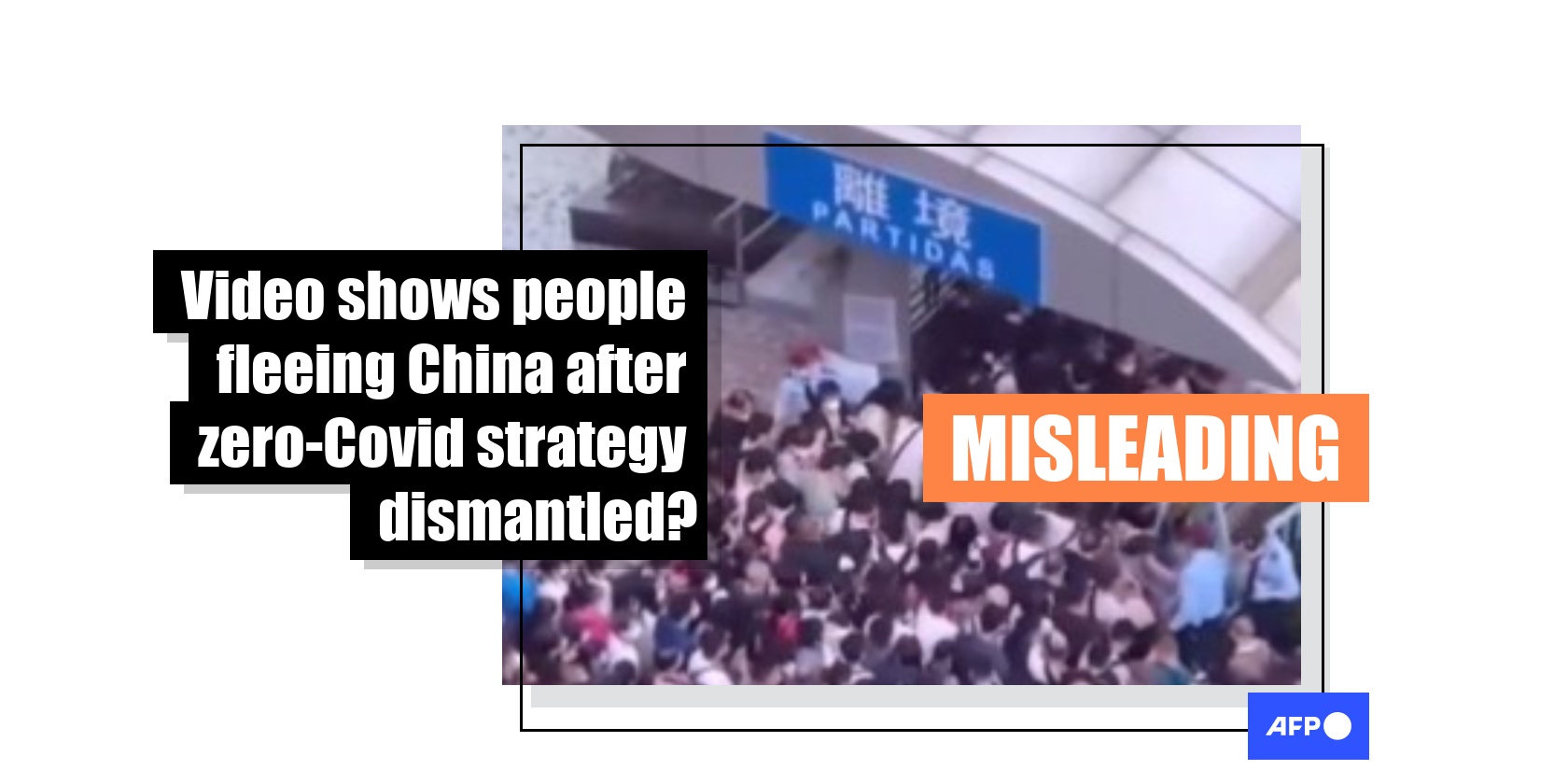
Video shows Macau border before zero-Covid policy eased, not 'people fleeing China in December'
- This article is more than three years old.
- Published on December 29, 2022 at 10:41
- 4 min read
- By Carina CHENG, AFP Hong Kong
The 33-second video published on Twitter on December 17 appears to show a huge crowd of people trying to squeeze through a walkway, above which a sign reads "departure" in both traditional Chinese and Portuguese.
The clip's Chinese-language caption translates to English in part as: "Yesterday, at the Zhuhai border, in the communist country, a dense and raging crowd fled in panic from the infected areas of the mainland!
"It reminds me of the wave of people fleeing to Hong Kong in the 1960s, but now that Macau is no longer a free world, is it useful to flee there? The zero-Covid policy is waiting for you."
The southern Chinese city of Zhuhai is linked to Macau, a former Portuguese territory, at Gongbei Port.
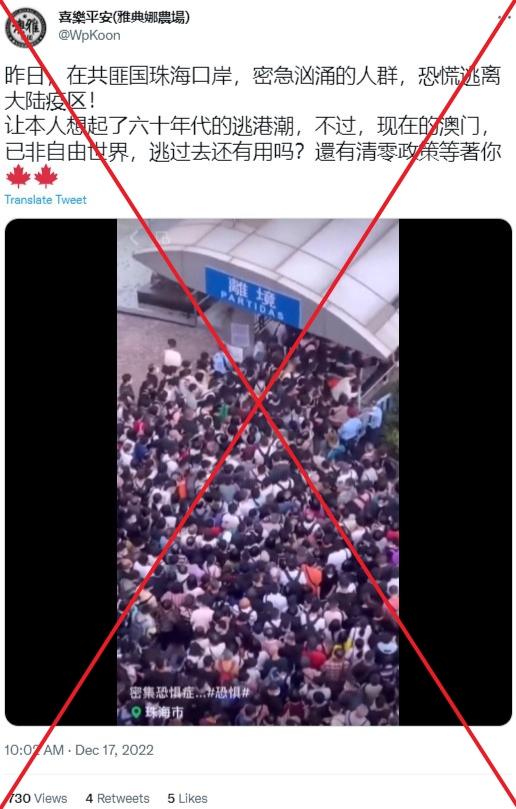
The video -- which includes two clips that feature the WeChat logo -- surfaced online after China's sudden decision on December 7 to ease its Covid restrictions.
Hospitals across the country have been overwhelmed by an explosion of cases following the move by Beijing, AFP reported.
The video was cumulatively viewed more than 45,700 times in similar posts on Twitter here, here, here and here; on YouTube here and here; and on Gettr here and here.
The video, however, predates the easing of restrictions and shows people trying to leave Macau at the border crossing which connects to Zhuhai.
Misrepresented footage
The footage was actually filmed at Macau's Portas do Cerco on November 20, 2022, before China suddenly relaxed Covid restrictions.
The video corresponds with news reports and social media posts from the time about border congestion caused in part by so-called parallel traders, who buy tax-free items in Macau and then resell them at a marked-up price in China while avoiding import taxes.
A keyword search found a corresponding photo of the same location uploaded by a Google Maps user at the border gate in September 2021.
The same sign in traditional Chinese and Portuguese seen in the video (left) can be seen in the Google Maps photo (right), as shown below:
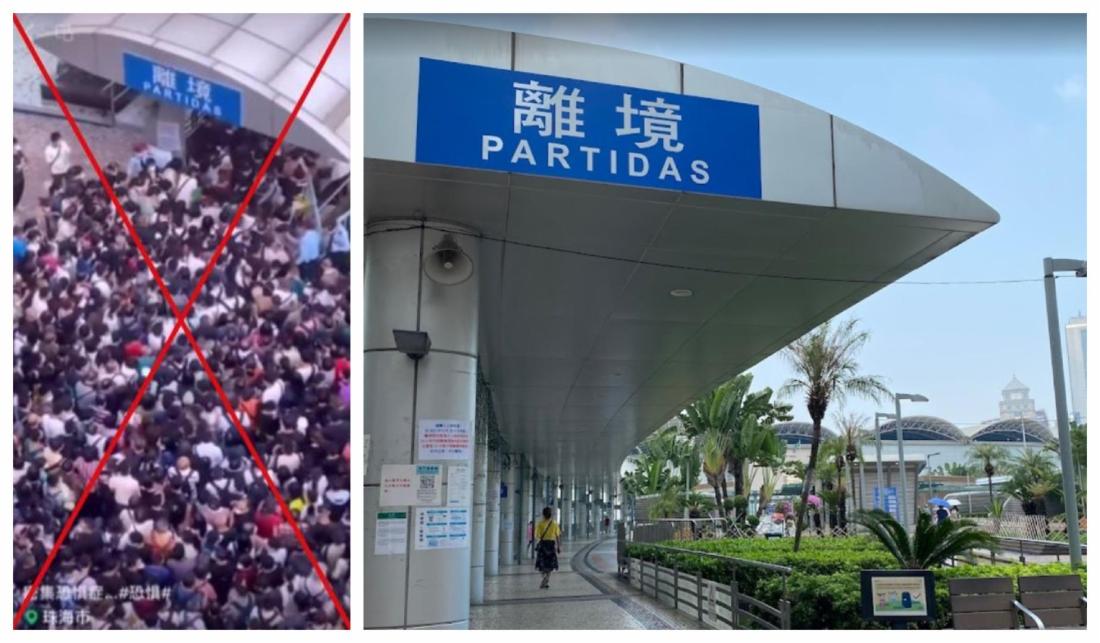
A reverse image search on Google found the first clip in the video was previously published by a Macau-based YouTube account on November 20.
The headline reads in traditional Chinese: "Are they giving something away for free at the border? So crazy."
Below is a screenshot comparison of the video in the misleading posts (left) and the YouTube video (right):
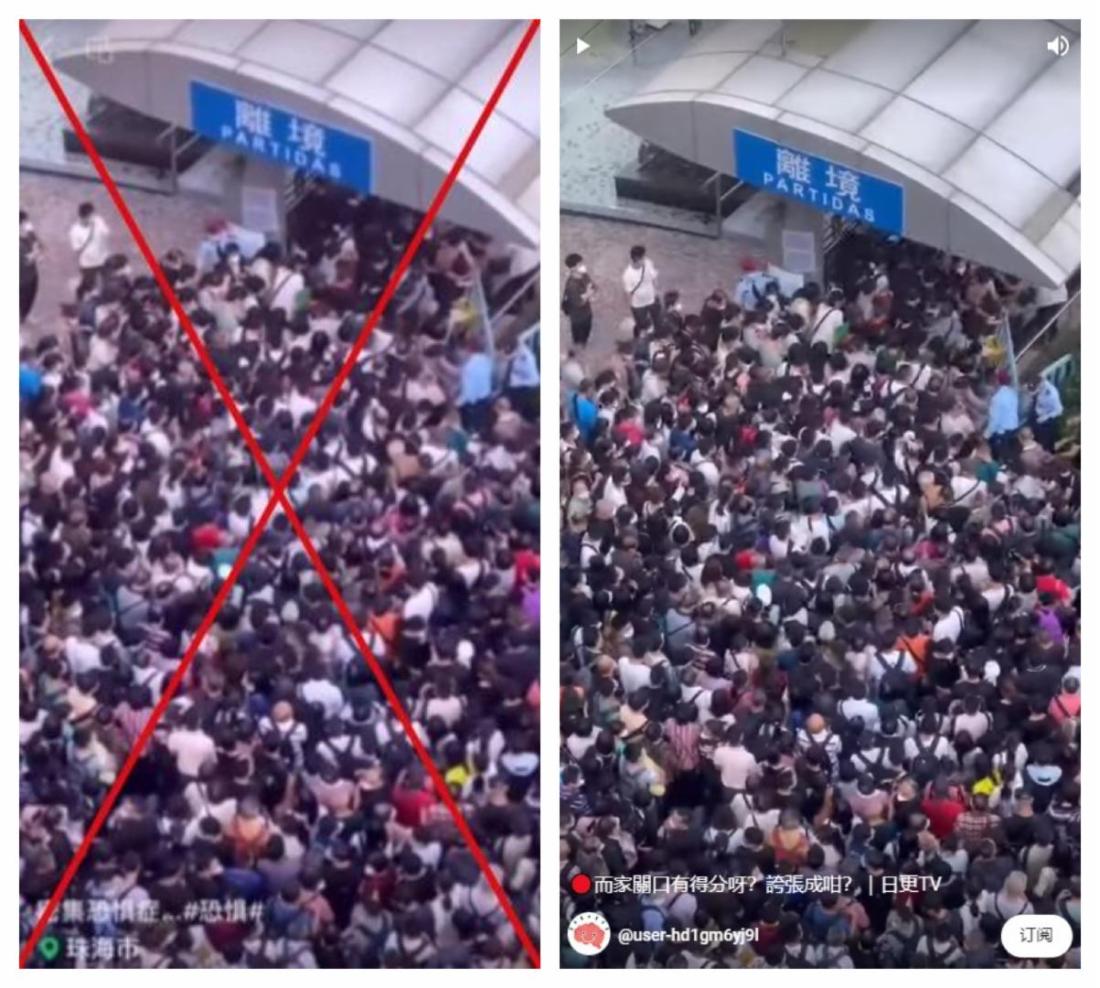
"This (scene) occurs frequently," one YouTube user commented in traditional Chinese below.
Another reverse image search found the corresponding footage of the second clip in the misleading posts, which was previously posted by another Macau-based YouTube user, on November 20.
"The Macau border Marathon has officially started! No fear of the epidemic! All together at the command! The parallel trading market is booming," the headline reads in traditional Chinese.
Below is a screenshot comparison of the video in the misleading posts (left) and the YouTube video (right):
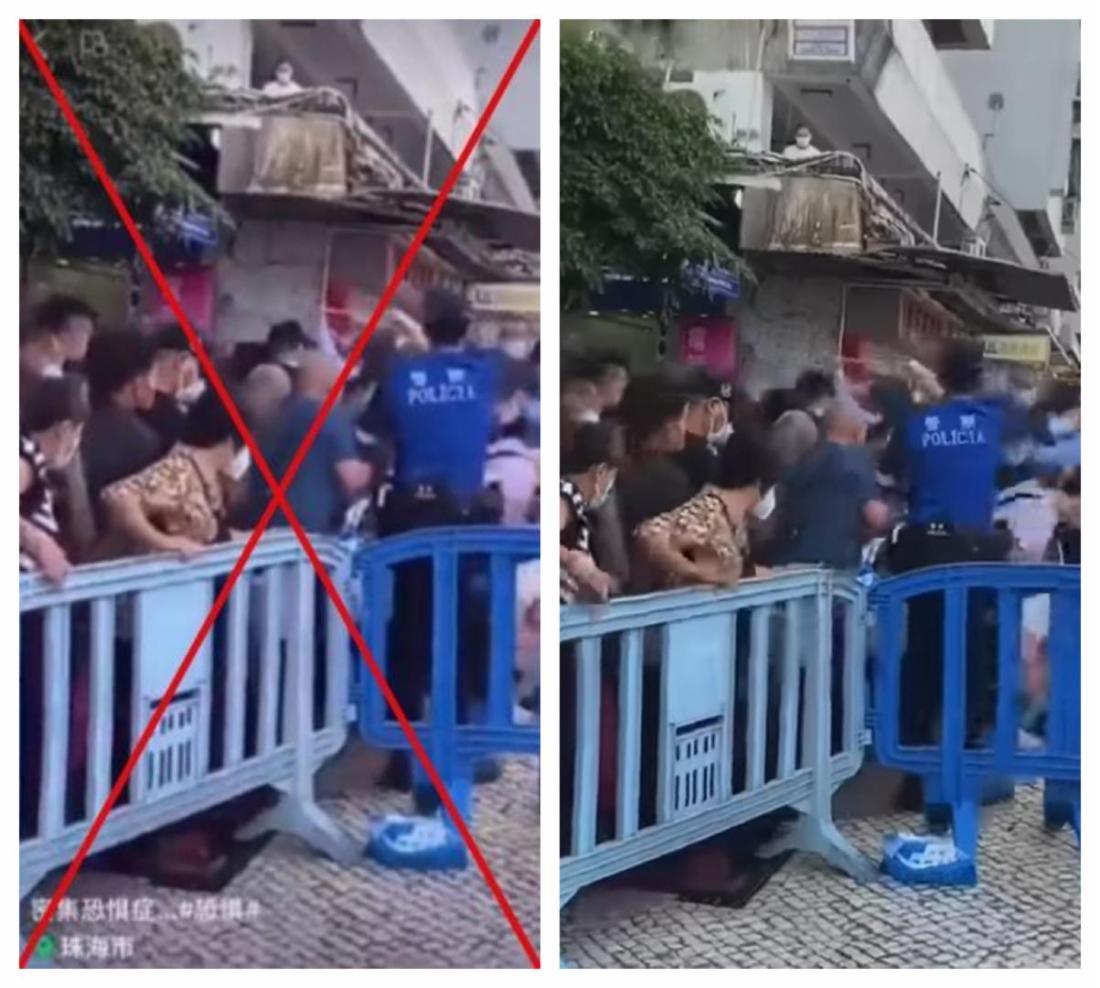
"It's scary to see. Macau people are struggling to make money, and 'parallel traders' are everywhere," reads a comment in traditional Chinese.
A video of the same location taken from a different angle was published by Macao Daily News' official account on Facebook on November 20, as shown below:
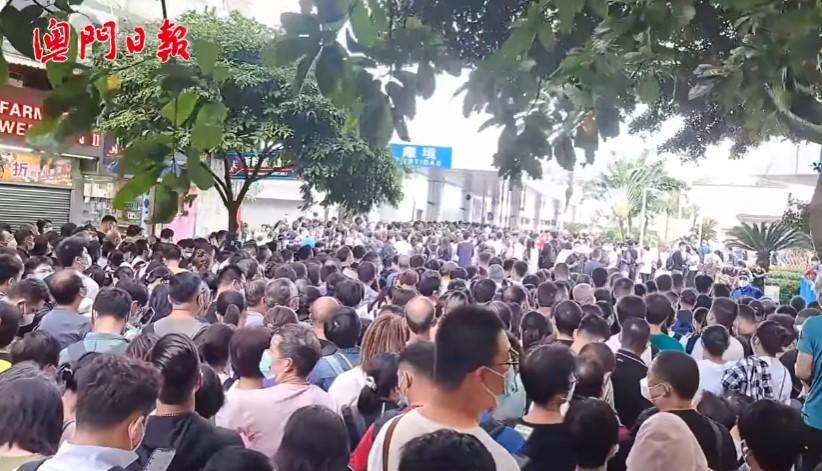
"Crowd control at Macau Border Gate, border square packed with departing passengers," the news article alongside the video reads in part.
"Some people who wanted to go shopping at the pharmacy were advised to leave, while others stayed around the square until the crowd control was lifted," it continues.
Wong Siu Chak, the Secretary for Security of Macau, said local parallel trading had recently caused serious disruptions at the border, particularly during the morning and evening rush hours, local media All About Macau reported on November 20.
"Wong said that the high profits of underground market trading during the pandemic had attracted parallel traders to cross the border," the news article in traditional Chinese reads in part.
In April, the English-language media site Macau Business reported that a variety of people were engaging in underground goods smuggling due to increasing levels of unemployment.
Copyright © AFP 2017-2026. Any commercial use of this content requires a subscription. Click here to find out more.
Is there content that you would like AFP to fact-check? Get in touch.
Contact us




